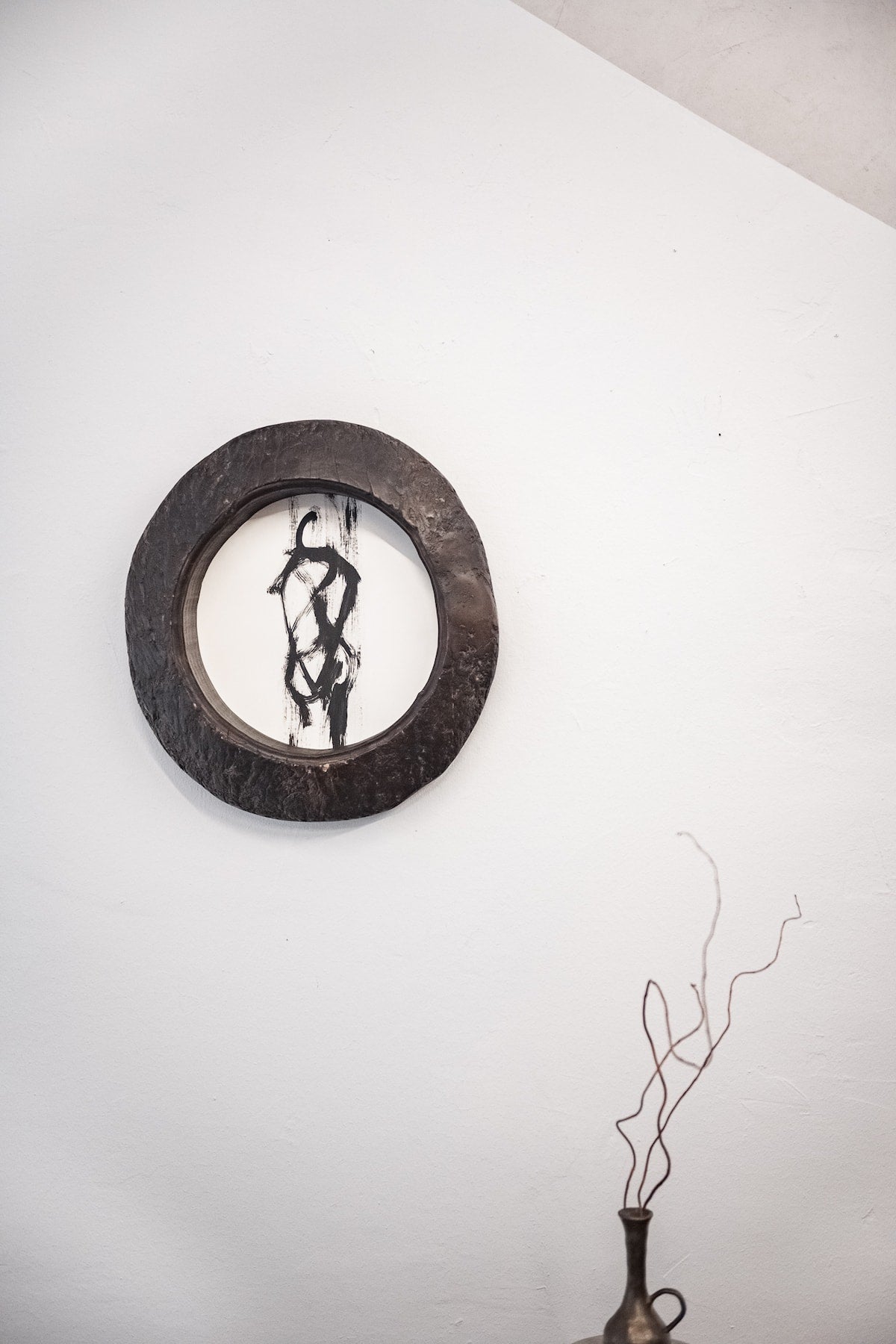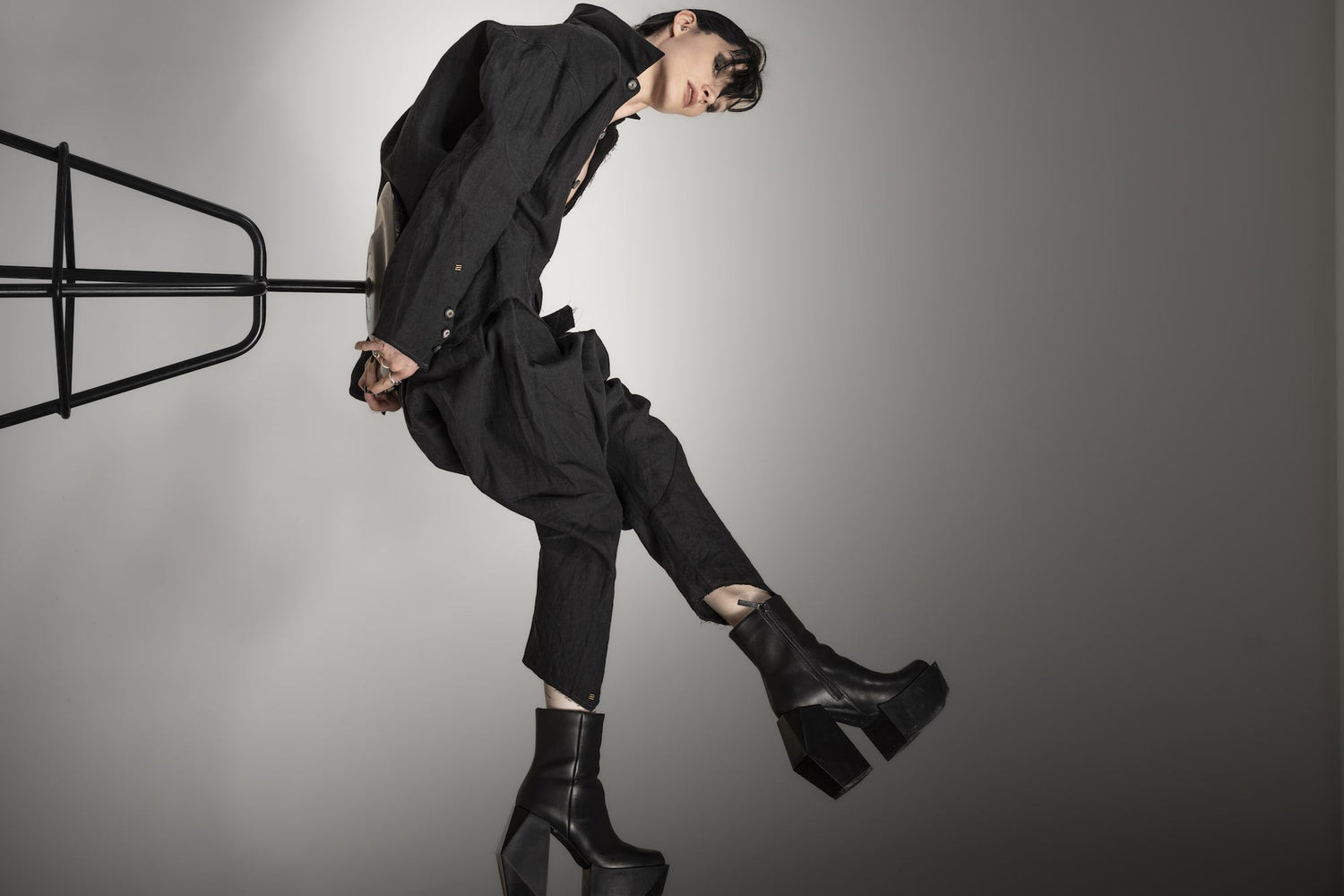DER ZEHNTE (X-TE) CHARAKTER
It is a term that was coined by the Austrian writer Robert Musil: “the tenth character”. In his magnum opus The Man Without Qualities (1930) – this “great attempt to mold the fraying modern world and its breaches of consciousness into a shape” (according to an article by Helmut Böttinger) –, Musil equips his (anti-?)hero with this character.
To describe this tenth character, we must first mention the other nine which precede it. According to Musil, these are “a professional, a national, a civic, a class, a geographic, a sexual, a conscious, an unconscious, and possibly even a private character to boot.” These are the roles exacted from a person who is a citizen of a country and part of a society, and he or she must cultivate all of them – actively or passively – to a certain degree. These roles shape a person and make him or her approachable. The list may appear arbitrary and not entirely thought through, but that is probably intentional, as the characters themselves are like pieces of clothing one may take off or replace, wear individually or in layers. They are not the constituent parts of the person him- or herself – quite on the contrary, Musil writes: “He unites [the nine characters] in himself, but they dissolve him, so that he is really nothing more than a small basin hollowed out by these many streamlets that trickle into it and drain out of it again, to join other such rills in filling some other basin.” There is no such thing as a “whole person”, only a “human something [...] in a generic nutrient fluid.”The nine characters are streamlets, dissolving the person who is nothing but a basin in a bland nutrient fluid. It is a brutal, uncomfortable image that has a dystopic feel to it. But it also feels honest in a way.
SO WHAT IS THE TENTH CHARACTER? AND: WHERE IS IT?
It is fair to say that the tenth character is located in a different place – or at a different level – than the other nine. The latter are acted out at a national level, whereas the tenth resides at a terrestrial or global level. “Which is why every inhabitant of the earth also has a tenth character that is nothing else than the passive fantasy of spaces yet unfilled. This permits a person all but one thing: to take seriously what his at least nine other characters do and what happens to them; in other words, it prevents precisely what should be his true fulfillment.” Musil calls it an “empty, invisible space, with reality standing inside it like a child’s toy town deserted by the imagination.” So what distinguishes Ulrich, the man without qualities, from the other inhabitants of Kakania (the novel’s setting, an allusion to the Austro-Hungarian empire before World War I)? “Of course, they are all without qualities, but with Ulrich, it is somehow visible,” he writes.
"
But if there is such a thing as a sense of reality&mdashand no one will doubt that it has its raison d’être&mdashthen there must also be something that one can call a sense of possibility.
ROBERT MUSIL
THE PASSIVE FANTASY OF SPACES YET UNFILLED.
An unwieldy definition, which we would like to interpret as follows: Empty spaces contain possibilities that have not yet been activated. And this takes us to the second concept closely entwined with the tenth character: A sense of possibility. “But if there is such a thing as a sense of reality&mdashand no one will doubt that it has its raison d’être&mdashthen there must also be something that one can call a sense of possibility. Anyone possessing it does not say, for instance: Here this or that has happened, will happen, must happen. He uses his imagination and says: Here such and such might, should or ought to happen,” Musil writes.
THE TYRANNY OF ENDLESS POSSIBILITIES, AND THE EXHAUSTED SELF.
At first glance, the word “sense of possibility” looks rather benign. But it is worth taking a closer look, especially in light of the phenomena of acceleration and the “frenetic standstill” (Paul Virilio). In an article, author Wolf Lotter describes the latter as a “life without one’s own time, in which there is time for everything – except for the question where it is we are running.” Without us noticing, self-realization has become a compulsion, self-optimization our religion. It is hardly surprising that the self is exhausted, that it is constantly haunted by the feeling of missing out or making a wrong decision. And it is no wonder that the self is reluctant to build lasting relationships, make commitments, decide which university course to take, choose a profession, etc. After all, there are so many alternatives! The freedom of choice is a curse and a blessing at the same time. When evaluating all available options becomes an overwhelming task, we are likely to experience a feeling of powerlessness. Like a huge invisible elephant, the question “How do I know whether I have made the right decision if I haven’t even looked at all the possibilities?” remains hanging in the air, making it stuffy and uncomfortably warm. Where is the window, we might ask ourselves, where is the door, the emergency exit?
"I WOULD PREFER NOT TO"
Before we return to Ulrich and his lack of qualities, we would like to weave Bartleby from the eponymous short story by Herman Melville, author of Moby-Dick, into this text. As a young scrivener in a lawyer’s office on Wall Street, he first attracts attention because of his taciturnity. Over time, he refuses to perform the tasks assigned to him with increasing frequency, always using the phrase “I would prefer not to.” In the end, he does not do anything anymore.
His refusal to engage in any kind of activity may be a symptom of depression. But it may also be interpreted as a response to meaningless activity, to the pressure of always having to do something that is prevalent in western civilization, hanging over our heads like the Sword of Damocles: Where there’s a will, there’s a way! Just do it! The fact that Melville published his text in 1853 proves that he had an incredible sensorium for phenomena that are rampant today – more than 150 years later! Which takes us back to the subject of “acceleration”. Refusing to participate in the fast-paced life imposed on us is the logical countermovement to the acceleration of the world. “I would prefer not to” has become a slogan for everyone who no longer wants to adapt to a world that is becoming faster and faster. Burnout or depression aren’t prerequisites for a new perspective, but they are often the point where we start thinking about deliberate inactivity. Like Musil’s Ulrich, people discover that they can say no.
JUST DON'T DO IT.
In this context, Musil writes, “So the sense of possibility might be defined outright as the capacity to think how everything could ‘just as easily’ be, and to attach no more importance to what is than to what is not.” What he means by this is not only that reality and possibility should be of equal value, but also that the possibility of nonbeing should be as valuable as being: Nonbeing as an equal option in the pool of a thousand possibilities. Empty spaces may contain possibilities that have not yet been activated, but it is also possible to make a deliberate decision against their activation – and remain in a state of passive fantasy.
NEGATIVE SPACE, A PRODUCTIVE IN-BETWEEN, THE LUXURY OF NOT HAVING TO KNOW.
To make the ideas of the tenth character, the sense of possibility and empty spaces more tangible, we would like to quote Aristotle: “The whole is greater than the sum of its parts.”
It suggests that the space between objects or living beings isn’t dead space, it is actually alive and pulsating. According to the philosopher François Jullien, this in-between space is active and inventive – a productive space. Think of the forest that is more than the total number of its trees. Its underground communication network has been euphoniously dubbed the “Wood Wide Web”. Think of the things implied between the lines of certain texts. Think of the weight of things that haven’t been said, the gravity of a silence that shouldn’t be there, or the levity of a silence we enjoy after our surroundings have become too noisy. Think of negative space, which is called “ma” in Japanese; an example from architecture would be the space between two table legs or pillars. Singer-songwriter Devendra Banhart, whose last album “Ma” was named after this concept of negative space, compared the space between objects to the space between musical notes – the silence is ultimately as important as the sounds you hear. “When you’re done with me, I see a negative space,” James Blake tells Rosalía in the song “Barefoot in the Park”. Does he mean that it is only thanks to her that he becomes something, or someone? That the framework she provides gives him a shape – or even shapes him? Or that he himself was the frame, and she was the content of the picture that was once his life? We don’t know.
But for a possibilitarian, not having to know everything is also a possibility.
ULRICH 2021: TEN BECOMES N.
Musil was a visionary, but he was also a child of his time. How would he – and now we also slip into the subjunctive mood – have described his nine characters in the 21st century? He could not have predicted the existence of something like the World Wide Web. The virtual character would surely be part of his list today. And even this character can be split into many parts. Just think of the “ LinkedIn Facebook Instagram Tinder” challenge, in which people present themselves in four different ways, assuming the appropriate roles for the four different networks. Since singer Dolly Parton started the challenge, millions of others have followed suit. The virtual self is subdivided into a professional one, a likeable one, a creative one and one that is looking for sex or love. And there are probably more.
When you rotate the Z from “Generation Z”, it becomes an N. And considering the infinite number of possible selves today, we might refer to the tenth character as “the nth character” – because it may no longer be possible to limit the characters preceding it to nine. We simply do this now, as “possibilitarians”, whom Musil describes as living “within a finer web, a web of hazed imaginings, fantasy and the subjunctive mood.” These attributes are frequently driven out of children to ensure that their “feet are planted firmly on the ground,” to quote Michael Ende’s Neverending Story.
But let’s be honest: Who really wants that? Who doesn’t enjoy dreaming of utopias? What would the world be without imagination? “A sense of possibility,” German philologist Brigitte Schwens-Harrant writes, “may be one of the fundamental prerequisites for creating literature – and for reading it.” And we are taking the liberty of expanding this statement to include all other arts and creative activities as well. Such as fashion.

